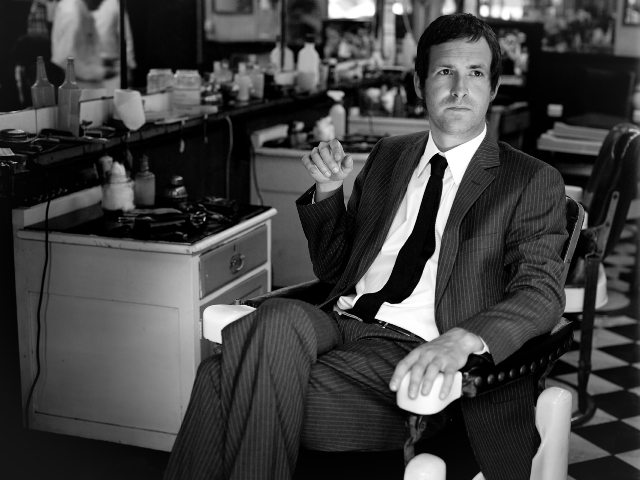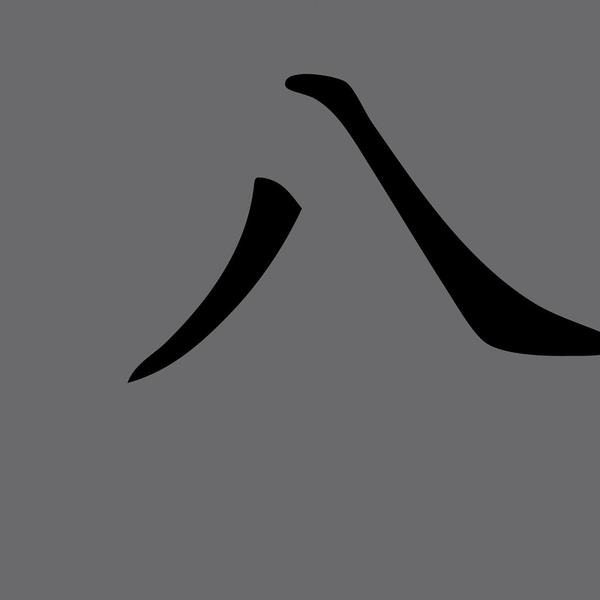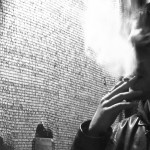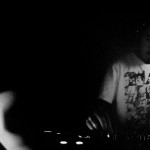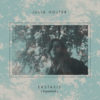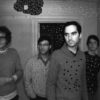“While some may look down upon dance music as some kind of populist late-night drivel,” Deadbeat writes via E-mail, “its ever-changing nature ends up being very inspiring for a producer. It’s always been fascinating to me–how changing the tempo of a track even a few BPM can unlock totally new grooves and inspire a completely fresh set of creative ideas. Here’s to hoping DJs continue to be hungry for new sounds and structures for a good, long time.”
That hunger’s certainly reflected on Scott Monteith’s last two LPs, which shift gears from the spacious and spooky widescreen pieces of Drawn & Quartered to the restless rhythms and twitchy tempos of this year’s Eight album.
“It’s not about pushing the limits of dub or any other kind of music so much as wanting to give something back to the small, immediate community around me,” he explains. “Hopefully with just enough of those not-quite-right moments each time, it doesn’t sound like I’m doing the same damn thing over and over again.”
You be the judge below, as the Canadian producer–now one of the many beat conductors in Berlin–shares an exclusive live mix (featuring some additional effects from Monolake’s Robert Henke!) and answers our prying questions…
Can you start by telling us a little bit about the mix you made for self-titled?
It’s actually a live recording of a show I did in Amsterdam some weeks ago. Robert [Henke] was playing after me and he adds some squiggly noises and effects at the end of the set. As it includes so much of the material we’ve talked about [below], I felt it was an appropriate set to include with the interview. There are some minor edits–as I had a few sound card issues due to a new computer and the evil that getting a new machine set up always entails–but it’s a pretty good approximation of at least one kind of set people might hear if they come out to the shows over the coming months.
Let’s shift gears to the start of your career now. When were you first exposed to electronic music? You grew up in Southern Ontario right? I’m from Buffalo and definitely learned a lot about ’90s dance music through living so close to Toronto. Was it the sameway for you, or were you not that into Canada’s jungle scene?
I was playing bass in a band up until I was 16 or so and eventually fell into a group of friends who were heading to Toronto most weekends to go to raves. After a bit of encouragement, I eventually started going as well and it changed everything for me musically. Though you are no doubt aware of this from your own experience, I think it makes sense to contextualize the environment at that time in Toronto a bit. Toronto had the biggest jungle/hardcore scene in the world outside of London, not to mention equally strong promotional engines for techno and house, and a lot of other massively dodgy trance and happy hardcore non-sense. This amounted to multiple 2,000-to-3,000-person parties going on nearly every weekend, and an absolutely immeasurable amount of drugs being taken. So for anyone who–like me–was just coming up and discovering that music and environment for the first time, it was a buffet fit for Caligula. Having access to so many different subgenres and styles on such a large scale was great in terms of developing a critical eye and ear to the different events and the music being played at them. I heard an enormous amount of crap over those years, but those amazing moments of discovery when I heard something that I did like made the hours of crap-filtering well worth it. I’m not sure I could say the same thing today now that I see it written down here in front of me. I don’t think there are very many other industries, creative or otherwise, which change and move at such a ridiculously fast pace that one catches oneself sounding maybe a tad old and crotchety at the ripe old age of 34.
When did you move to Montreal, and why did you ultimately decide to leave that city for Berlin? How have each of those cities inspired your music in different ways?
I moved to Montreal initially because I had developed a severe crystal meth habit and needed to get out of town before it–or some circumstance associated with its sale or purchase–decided to end things for me in an undoubtedly nasty way. I spent a part of my childhood in the eastern townships outside of Montreal and still had some good friends there who were kind enough to take me in and give me a chance to get back on my feet. The influence of Montreal on my music and life in general is incalculable. I’ve said it before but it’s worth mentioning again–were it not for my friends there, and more specifically those associated with the Mutek festival, I simply would never have started making music with any seriousness, nor ever entertained the idea that I might be able to make some kind of career of it, humble though it may be.
The move to Berlin was more of a financial necessity, but this city has had a magnetic influence on me for years. I was of course a huge fan of the Basic Channel/Chain Reaction camp and all of its associated artists, and it has been a great pleasure to meet many of those people and get to know them as individuals over the last many years now. Stefan Pole gets a special mention here, of course; my association with him and ~scape is another piece of the puzzle that holds colossal weight. Had I not met him in 1999 at the first pre-Mutek event its very likely not very many people outside of a small group of friends would ever have heard my music at all.
Dub, and Jamaican music in general, has obviously been a huge inspiration on your music over the years. When did you first realize that it went so much deeper than what most people are exposed to (the occasional Bob Marley or Peter Tosh record basically)?
I had a flat mate in Montreal who initially made me aware of that side of things in the slightly snobby, highbrow interest that often befalls serious collectors of schooling me on where a lot of the samples were coming from in the jungle records I was playing in the house. I’ve always been a big fan of vinyl so once I started digging into the reggae sevens there was no turning back really. If you stacked every house music 12-inch that has ever been made on top of one another the tower would probably get a good distance toward the moon at this point. If you did the same with reggae sevens I expect you’d be approaching Mars without ever having added a record produced after 1980. It’s absolutely staggering the amount of music–and more importantly the amount of amazingly good music–that one island has produced over the years, and that says nothing of the wider cultural impact Jamaican music and the sound-system culture surrounding it have had. It’s been discussed in great detail by people far more educated and eloquent than I (Lloyd Bradney’s Bass Culture is a fantastic read for anyone who’s interested), but it’s safe to say that without that influence, dance music culture as we know it today–regardless of genre–would very likely not exist.
The person who has personally taught me the most about reggae and Jamaican music over the years, though, is my good friend Mossman from Montreal. He is definitely one of, if not the biggest, reggae archivist in Canada. We ran a dub night together for a few years before I left Montreal and he would pull out totally mind-melting rare dubs and versions almost every week. At the end of the day I guess that’s what excites me so much about that stuff. You may think you’re sick of hearing a particular riddim and that no one can possibly do anything with it you haven’t heard a hundred times before, then in walks someone like Moss and drops a version that he and maybe three other guys in the whole world own and blows the dance to smithereens, and there you are, dancing like a fool, wanting to hear that riddim you were so tired of five seconds before over and over again for the rest of your life.
In an interview with Stylus a while back, you mentioned how roots reggae has many melodic similarities to Christian hymns. When did you realize that? And since your father is a United Church minister, do you have fond memories of the music you heard in church early on in your life, or does it have negative connotations because you don’t consider yourself a religious person?
The thought most recently occurred to me after picking up a Blood and Fire compilation of Niney the Observer’s singles, but I can remember having similar thoughts when I heard Ras Michael and the Sons of Negus several years before. There is a commonality with most western religious music–major scales, choruses generally finishing in a descending progression toward the root note–all these musical devices and structures which provide this sense of simple release and closure when the song is finished. There are no ifs, ands, or buts involved. Here is the good word sent down from the mountain, rejoice and go about your drudgery with a smile on your face. And therein lies the problem when I think about this music from a critical, logical standpoint as a non-believer. Whether for Bobo Ashanti Rasta men or deep south Bible belters, songs are ultimately devices being used for brainwashing on an absolutely colossal scale.
On the other hand, I often find myself singing songs even today which I originally learned in church when I was very young and still take great pleasure in doing so. I remember very clearly the first time I was taught an alto part when I was a child in the choir and the effect of hearing my voice harmonizing with the rest of the choir was electrifying. It goes without saying that music has a unique ability to both bring about great joy and comfort people at the very worst of times, as such it’s crucially important sometimes to just forget the wider connotations a song may have and relish its cathartic effects, or said plainly, quit thinking so goddamn much and just enjoy the fucking song.
One of the things I love about your music, and other artists like the Bug and Basic Channel, is how you are all creating postmodern, almost futuristic versions of dub music, rather than simply replicating the familiar riddims and feel of classic reggae. Is that a goal for you with every album–to push your work way past the assumed limits of dub music?
Everyone begins their explorations of creative arts–regardless of the medium–by copying the work of others whom they respect, and that is just as true for me as anyone else. It can be both an incredibly gratifying and frustrating process, as you learn so much craft during that initial period of flailing about, and everything is new and exciting, though utterly alien. There are always bits and pieces that never sound or look quite right to begin with, or at least not like the persons you are trying to emulate, and this is often a serious road block for many people. I believe it’s exactly those “not quite right†parts which signal the beginnings of an independent creative vision, or in the case of music, voice as it’s often referred to.
I’ve never begun any project with the expressed intent of creating something utterly new, or restricting things by saying that it can’t or shouldn’t sound like someone else or even my own previous work. It’s in fact a quite dull, workman-like process most days–just going to the studio and putting in the hours and seeing what comes out–and as time goes on and you get to know the tools and develop certain working methods, it can take a lot longer to arrive at those not quite right moments. Inevitably at some point a trajectory makes itself apparent both for individual songs and later with the interconnection of different pieces, and this births a whole new set of ideas and motivations, which all faring well eventually leads to a cohesive whole that’s fit to be released into the world as an EP, album, film soundtrack, installation, USB key cannon fodder for your DJ buddies, a mixtape for your lover, podcast for veracious bloggers, or whatever else seems to make the most sense for that particular body of work.
Your last record, Drawn & Quartered, is an incredibly immersive, deep listen. Was that your goal going in–to create a series of extended songs that explore the bare essentials of dub techno in new ways?
To be perfectly honest, Drawn & Quartered came about almost by mistake. I wrote the material which ended up making up the album over a period of about a year and a half which directly coincided with the nine months leading up to, and first few months of my daughter’s life. Anyone who has had children will tell you that that period is a total emotional roller coaster and involves a lot of self evaluation and consideration of priorities. Over that time I was just going to the studio whenever I had the chance and just making sound with no thought of completing anything, and in fact a great fear that I was never going to complete anything again at all as my head was in a totally different place and thinking about a million other things. Some days I’d record a couple of hours of senseless noodling on the modular through a delay pedal, other times it might be listening to the same drum loop over and over and just recording little moves on the mixer for a few hours, or the same sort of long hypnotic kind of process ripping up field recordings in software. In retrospect it’s exactly what I needed at the time, just to do something repetitive and mind focusing as I was naturally worried some days and excited others about many, many other things and how my life was about to change quite dramatically. At some point I started layering all those long recordings together and realized I had these 4 epic, steady state tracks which could fit quite comfortably on 4 sides of vinyl, as well as an older piece, Plateau Quarter which fit the concept quite well, and the rest is history as they say.
Not to get too off-track or anything, but one of my favorite songs of yours is actually a remix: the “Plumbicon” one you did for Monolake. You also recorded a live set with Monolake in 2008 and did the “Random Brown” 12-inch together in 2006. Would you consider Robert Henke one of your closest contemporaries in the Berlin techno scene?
I’ve known Robert for many years now. I sent him fanboy mail back in the ’90s, when I got my first E-mail account, and we have kept in contact ever since then. We’ve shared a lot of funny experiences together over the years, both musically and in our work in the music technology industry–he at Ableton and me at Applied Acoustics–at some mind-numbingly boring trade shows and events. And of course, we performed our Atlantic Waves project together over the internet at a few festivals some years ago. He has also been our man from Germany on more than a few hair-raising Mutek tours. It’s funny how some people just stay in your orbit over such a long period of time. Funnily enough we live within rock throwing distance of one another now here in Berlin. He can see into my kitchen from his balcony and I often see him watering and muttering to his quite sizable cactus collection in the morning. He is a great friend and though we don’t see each other on a daily basis and sometimes not for long periods, I always take a great deal of inspiration, and a fair collection of music geek jokes away from our meetings.
Your new album, Eight, is a much more urgent listen than the last one. Is that a reflection not just of your recent move to a new studio, but your state of mind as well?
Switching studios definitely played a big part in the overall sound, to the extent that I think it might be a good idea to do it for every album going forward. Presenting yourself with a set of new tools and getting out of your comfort zone creatively can only lead to good things. There has always been this natural creative pendulum swing for me over the years which makes me gravitate towards dancefloor-oriented things on one hand and more deep listening, experimental sounds on the other. After finishing Drawn & Quartered, I definitely felt the need to work on something more physical and immediate, and as I mentioned earlier something by DJ friends might actually be able to play on an typical night out. In Berlin here for the last few years–and to a certain extent globally as well–there has been a real focus on house music at least in the circles I travel in, to the point where it seems to be getting played to the exception of everything else, particularly techno. As such, I was feeling drawn to much more techno-like, harder sounds while writing this record and I think that comes through quite clearly. As dubstep has been appropriated by the wider world–and truth be told, many of its earliest innovators started making house music as well–there is an element of its initial template that I really loved, the sheer heaviosity and rhythmic adventurousness that has gotten lost to some degree, and I think a desire to hear that again also held some influence. I say all this with the benefit of hindsight though; none of that really played any part in the day to day composition of the tracks that eventually became the album.
Tell us a little bit about your collaborators on Eight, and how they may have helped take your music in new, exciting directions.
Danuel [Tate], Mathew [Jonson], Martin [Schopf], and Robert [Henke] are all good friends and we have played a lot together over the years. With Danuel, I was working on a track which eventually turned into the first version of “Lazy Jane,” and the whole time I kept hearing his vocoder vocals over it while I was working in my head. Conveniently he happened to be coming to Berlin for some Cobblestone Jazz dates so I sent him the idea over E-mail and we did a studio session one night while he was here and just banged it out. Mathew and I do semi-regular studio freak outs together every few months and it always results in some interesting stuff, though not always fit for wider consumpion. I had the drum tracks done for “Wolves and Angels” and we wrote the chord progressions and of course his unmistakable SH101 work during one of those sessions at his studio. “Horns of Jericho” began life as a remix for Martin for a new Swiss label called Cadeceus records and after I had submitted it to them I did another mix which was a bit slower and more 3D in some ways, and thought it would be a great closer for the album. Thankfully both Martin and Lada–who run the label–were okay with it and I’m very happy I was able to include it. Robert’s involvement came about as he was the first person I played the album to at an early stage and he gave some great advice which shaped how I completed things. Literally two nights before I was scheduled to go to mastering, there was something with the mix of “My Rotten Roots” which just didn’t sit right with the album as a whole and he came by the studio and sat with me until very late until we got it right. It still blows my mind that I have had the pleasure of being surrounded by so many incredibly talented people over the years and it is truly a great honor to be able to work and perform with them.
What are your plans for the rest of the year in terms of remixes, other releases, touring, etc.? Any chance we’ll hear another record from your Crackhaus project anytime soon?
I’ve recently completed some remixes–one for Deepchild on Thoughtless and one for Signal Deluxe on Panta Muzik from Mexico–which are out now. I’m beyond honored to be working on a remix for the Orb and Lee Scatch Perry, which will be coming out at some point over the next months. I’ll be releasing a record or two of remixes by other people of material from Eight on BLKRTZ at some point. Finally DJ Olive and I have put together the third edition of the ever excellent Air Texture ambient compilation series, which should see the light of day early next year. In terms of touring there will be a lot of dates around the album over the coming months, and I will be debuting a very exciting new project with Ari Benjamin Meyers next week at the Approximation Festival which is curated by Haushka in Dusseldorf. Steve [Beaupré] and I talk about the idea of a new Crackhaus record once every couple of months and it is my great hope that at some point we actually get off out asses and do it. I would say it is a very likely prospect though.
–
